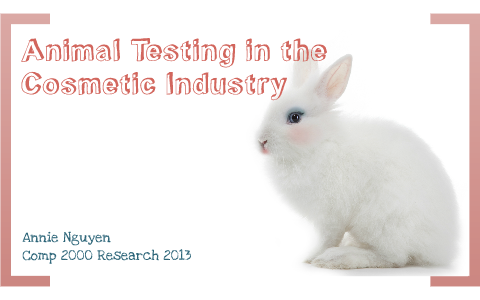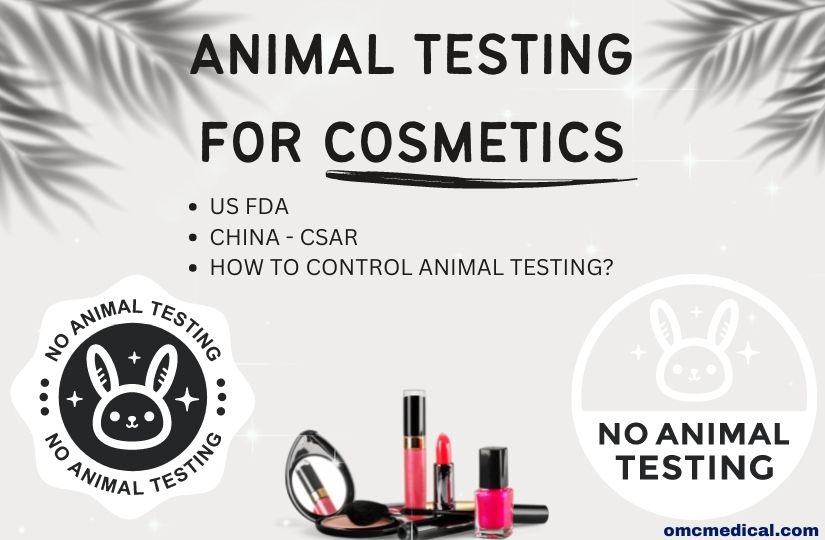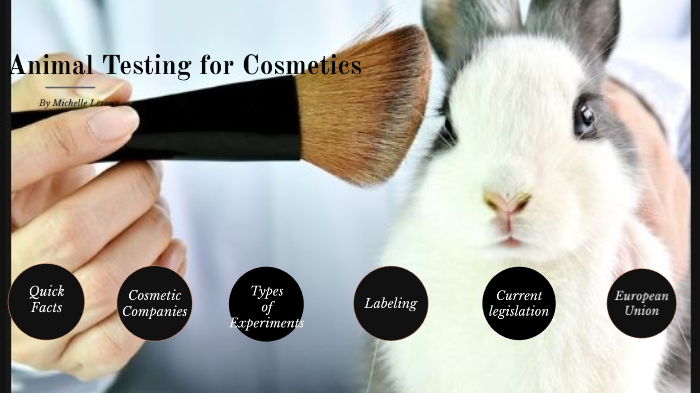The Complexities of Animal Testing in the Cosmetics Industry: A Comprehensive Examination
Related Articles: The Complexities of Animal Testing in the Cosmetics Industry: A Comprehensive Examination
Introduction
In this auspicious occasion, we are delighted to delve into the intriguing topic related to The Complexities of Animal Testing in the Cosmetics Industry: A Comprehensive Examination. Let’s weave interesting information and offer fresh perspectives to the readers.
Table of Content
The Complexities of Animal Testing in the Cosmetics Industry: A Comprehensive Examination

The ethical implications of animal testing in the cosmetics industry have been a subject of intense debate for decades. While many companies have embraced cruelty-free practices, others continue to utilize animal models for product safety assessments. This article provides a comprehensive overview of the current landscape of animal testing in the cosmetics industry, exploring its complexities, rationale, and the ongoing efforts to develop alternative methods.
Understanding Animal Testing in Cosmetics:
Animal testing in the cosmetics industry refers to the use of live animals to evaluate the safety and efficacy of cosmetic products and ingredients. This practice typically involves exposing animals to various substances, observing their reactions, and recording any adverse effects. While the specific methods and protocols vary depending on the product and the desired information, common practices include:
- Skin irritation tests: Applying the product to the skin of animals, such as rabbits, to observe signs of redness, swelling, or other irritation.
- Eye irritation tests: Applying the product to the eyes of animals, such as rabbits, to assess potential eye damage.
- Toxicity tests: Administering the product orally or through injection to animals, such as rats or mice, to determine its potential toxicity.
- Sensitization tests: Exposing animals to the product to assess whether it can cause allergic reactions.
The Rationale for Animal Testing:
Proponents of animal testing argue that it remains a crucial tool for ensuring the safety of cosmetic products. They cite the following justifications:
- Lack of reliable alternatives: While alternative methods are being developed, they are not yet considered fully reliable for all types of testing.
- Human safety: Animal testing is seen as a necessary step to ensure that products are safe for human use, as animal models can provide valuable insights into potential risks.
- Regulatory requirements: Some countries still mandate animal testing for certain cosmetic products, forcing companies to comply with these regulations.
The Ethical Concerns and Alternatives:
Opponents of animal testing highlight the ethical concerns associated with this practice, arguing that:
- Animal suffering: Animals subjected to testing often experience pain, distress, and even death.
- Lack of relevance: Animal models may not accurately reflect human responses to cosmetic products, leading to potentially misleading results.
- Availability of alternatives: Advances in cell-based testing, computer modeling, and human volunteer studies offer promising alternatives to animal testing.
The development of alternative methods is a crucial aspect of reducing animal use in the cosmetics industry. These alternatives offer several advantages, including:
- Ethical considerations: They minimize or eliminate animal suffering.
- Scientific accuracy: They often provide more relevant and reliable data for human safety assessment.
- Cost-effectiveness: They can be more efficient and cost-effective than traditional animal testing methods.
The Global Landscape of Animal Testing Regulations:
The regulatory landscape surrounding animal testing for cosmetics varies significantly across the globe. Some countries, such as the European Union, have banned animal testing for cosmetics and their ingredients. Others, such as China, still require animal testing for imported cosmetics.
The Role of Consumer Demand:
Consumer demand for cruelty-free products has significantly influenced the shift towards alternative methods. Consumers are increasingly aware of the ethical implications of animal testing and are choosing to support companies that embrace cruelty-free practices.
FAQs by Makeup Companies that Animal Test:
Q: Why does your company still conduct animal testing?
A: Our company is committed to ensuring the safety of our products for our customers. While we are actively exploring and investing in alternative methods, some regulatory requirements in certain markets still necessitate animal testing. We are working closely with regulatory bodies to advocate for the adoption of alternative methods and to promote a cruelty-free future for the cosmetics industry.
Q: What specific products are tested on animals?
A: The specific products that require animal testing vary depending on the regulations in different countries. We are committed to transparency and will provide detailed information about our testing practices upon request.
Q: What steps are you taking to reduce animal testing?
A: We are actively investing in research and development of alternative methods, such as in vitro testing and computer modeling. We are also working with regulatory bodies to advocate for the adoption of these alternatives and to promote a global shift towards cruelty-free practices.
Tips by Makeup Companies that Animal Test:
- Transparency: Be transparent about your testing practices, providing clear and detailed information about the products and ingredients that are tested on animals.
- Alternative Methods: Actively invest in research and development of alternative methods to reduce or eliminate animal testing.
- Regulatory Advocacy: Engage with regulatory bodies to advocate for the adoption of alternative methods and to promote a cruelty-free future for the cosmetics industry.
- Consumer Engagement: Educate consumers about your testing practices and the ongoing efforts to develop alternative methods.
Conclusion by Makeup Companies that Animal Test:
The cosmetics industry is facing a complex ethical dilemma regarding animal testing. While the pursuit of safety for consumers remains paramount, the ethical concerns associated with animal testing cannot be ignored. Companies that continue to utilize animal models must demonstrate transparency, actively invest in alternative methods, and engage in advocacy to promote a more humane and sustainable future for the industry. As consumer demand for cruelty-free products continues to grow, the pressure on companies to adopt alternative methods will only intensify. By embracing ethical practices and investing in innovation, the cosmetics industry can create a future where beauty and compassion coexist.

/GettyImages-1316412895-c10088ce59774d329891a246daa68dda.jpg)



:max_bytes(150000):strip_icc()/GettyImages-10031716-cdfc59536c744f7a8906057ce6dd832b.jpg)


Closure
Thus, we hope this article has provided valuable insights into The Complexities of Animal Testing in the Cosmetics Industry: A Comprehensive Examination. We hope you find this article informative and beneficial. See you in our next article!